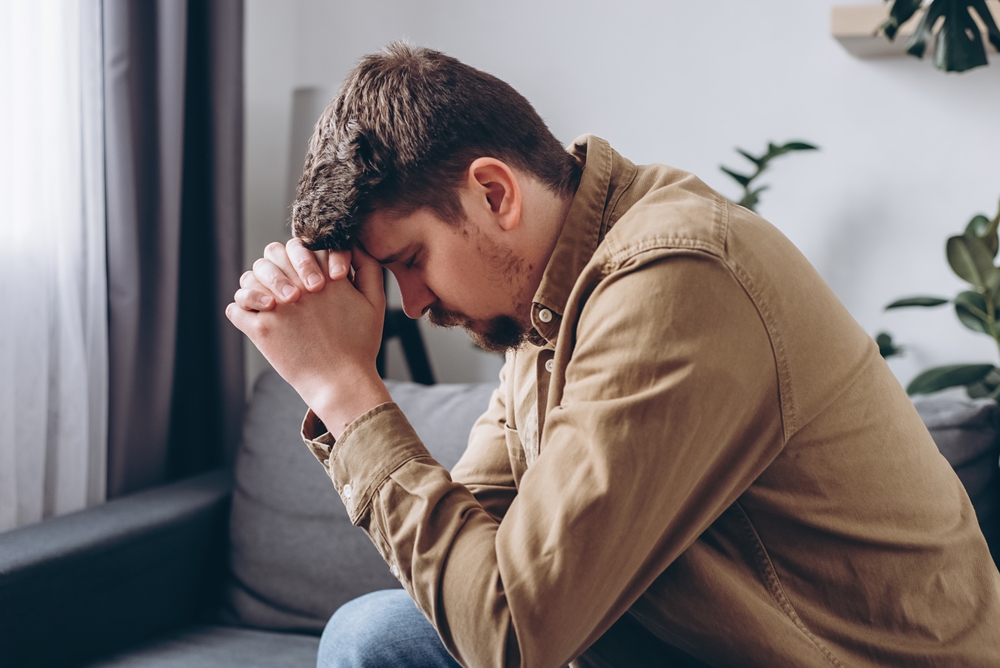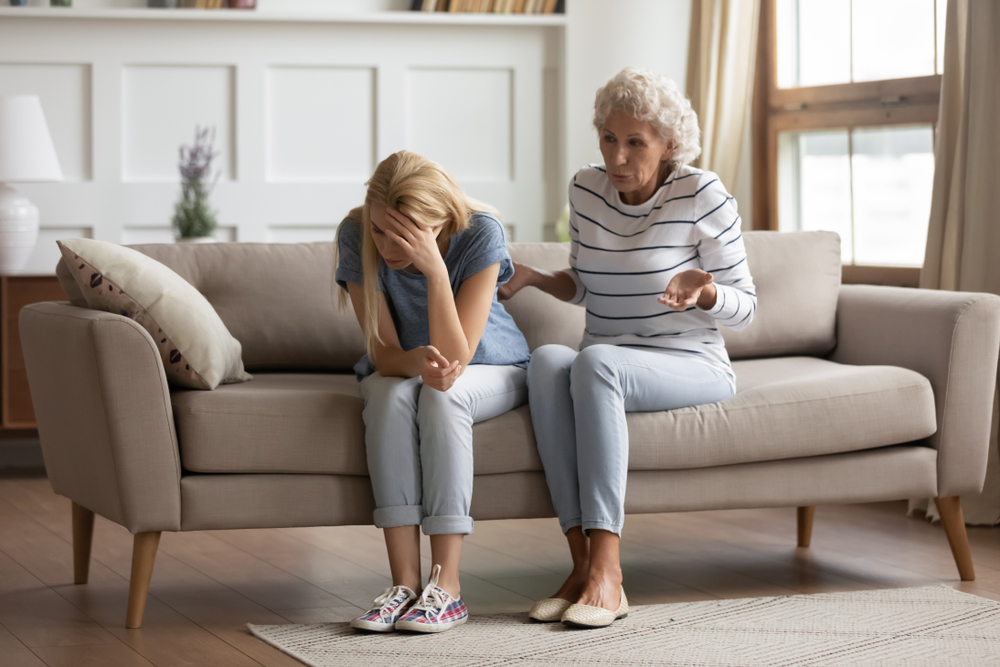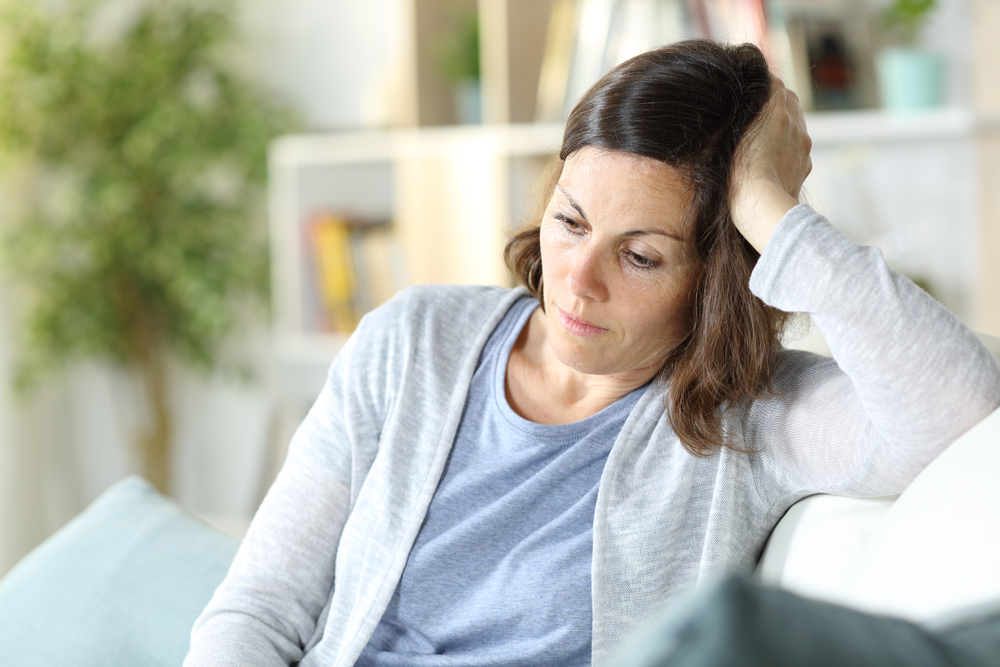Growing up without a dad? It’s tough, and it can mess you up in all sorts of ways that stick around long after you’re grown. I mean, think about it—whether your dad left, passed away, or just wasn’t really present, that absence can seriously shape who you become. It can impact how you feel about yourself, how you relate to others, and even your physical health. So, let’s dive into 17 reasons why not having a father figure can leave such a lasting mark.
1. That Emotional Pain Cuts Deep

When you grow up without a dad, it can leave you with some serious feelings of abandonment and rejection. You might start thinking, “Was I not good enough? Was I not lovable enough for him to stick around?” Those thoughts can really do a number on your self-worth. And the worst part? Those wounds don’t just magically heal when you hit adulthood. They can color every relationship you have moving forward, making it hard to trust, to feel secure, or to believe that you’re worthy of love. It’s like your dad’s absence becomes this lens through which you see everything, and it can distort your view of yourself and the world around you.
2. Trusting People? Not so Easy

Let’s be honest, when your main male role model walks out or lets you down, it can seriously mess with your ability to trust. You might find yourself always waiting for the next disappointment, the next abandonment. It’s like you’re constantly bracing for people to bail on you, just like your dad did. And that lack of trust? It can seep into all your relationships, making it super hard to let people get close. You might push friends or partners away, or maybe you just never fully open up, because deep down, you’re scared of being let down again. Trusting people after being burned by your own dad is no walk in the park, that’s for sure.
3. Getting Close to People Can Feel Impossible

Okay, so we’ve covered trust issues, but what about actually forming deep, meaningful connections with people? Yeah, that can be a real challenge when you didn’t have a dad to model healthy relationships. You might find yourself either clinging to people for dear life, terrified they’ll leave you, or pushing them away before they can get close enough to hurt you. Intimacy, vulnerability, commitment—these can all feel like foreign concepts when no one was there to show you the ropes. And the sad truth is, these attachment issues can dog you well into adulthood, making it tough to build the kind of stable, loving relationships we all crave.
4. You May Seek Validation in All the Wrong Places

When you grow up without a father’s love and approval, it can leave a void that you desperately want to fill. You might find yourself seeking validation from all sorts of unhealthy sources—toxic relationships, risky behaviors, maybe even substances. It’s like you’re trying to prove your worth, to show the world (and yourself) that you matter, even if your own father didn’t seem to think so. But the problem is, these kinds of external validations are fleeting. They might make you feel good for a moment, but they don’t heal that underlying wound of fatherlessness. Learning to validate yourself from within is a crucial but challenging journey.
5. Feelings of Unworthiness Can Linger

When your father isn’t there, it’s easy to start believing that there must be something wrong with you. That you’re not worthy of love, of attention, of a father’s care. And those feelings of unworthiness? They can stick around long after you’ve grown up and moved on. You might find yourself constantly questioning your own value, your own lovability. You might settle for less than you deserve in relationships or in life because, deep down, you don’t believe you deserve better. Rebuilding that sense of self-worth, of knowing that you are enough just as you are, is a crucial but often challenging part of the fatherless journey.
6. You May Mourn the Father You Never Had

One of the most profound pains of growing up without a father is mourning the father you never had. Even if your actual father was no prize, you might find yourself longing for the father he could have been, the father you deserved. You might grieve for the memories you never got to make, the guidance you never received, the love you were denied. This kind of ambiguous loss can be incredibly hard to process because it’s a loss of something you never really had. Learning to grieve that ideal father, to let go of the fantasy and accept the reality, is a painful but necessary part of the fatherless journey.
7. Trust in Yourself May Be Shaky

One of the most insidious effects of growing up without a father can be a lack of trust in yourself. Think about it—when your own father doesn’t show up for you, it can be hard to believe that you can show up for yourself. You might doubt your own judgment, your own abilities, your own instincts. You might constantly second-guess yourself, looking for validation from others because you don’t trust your own inner compass. Learning to trust yourself, to believe in your own resilience and resourcefulness, is a key part of healing from a father’s absence. It’s about learning to be your own best parent, your own most reliable support system.
8. You Have a Father-Shaped Hole in Your Identity

Fathers play a big role in helping us answer that age-old question: “Who am I?” When that piece of the puzzle is missing, it can leave you feeling a little lost, a little incomplete. You might struggle to define yourself, to figure out where you fit in the world. Are you supposed to be like your dad, even if you barely knew him? Are you destined to make the same mistakes, to follow in his footsteps? These are heavy questions to grapple with, especially when you don’t have a father’s guidance to light the way. That father-shaped hole in your identity can leave you feeling adrift, unsure of who you are or who you’re meant to become.
9. Navigating Masculinity Can Be Tricky

For boys especially, growing up without a father can make the journey to manhood feel like uncharted territory. You might find yourself looking to all sorts of other sources to figure out what it means to “be a man”—friends, media, maybe not always the healthiest influences. Without a father to model the positive aspects of masculinity—things like integrity, responsibility, and respect—you might struggle to develop a healthy, balanced sense of your own manhood. You might overcompensate with machismo, or swing the other way and reject masculinity altogether. Finding your way as a man without a father to guide you is no easy feat.
10. Anger May Become Your Go-To Emotion

Growing up without a father can leave you with a lot of pent-up anger. Anger at him for leaving, anger at the world for dealing you this crappy hand, maybe even anger at yourself for not being “enough” to make him stay. And when you don’t have healthy ways to process and express that anger, it can start to control you. You might lash out at others, get into fights, or just simmer with rage under the surface. Anger can become your default emotion, your go-to response to any challenge or slight. Learning to manage that anger, to express it in healthy ways, is a crucial task for many fatherless folks.
11. You Have Difficulty Dealing with Authority Figures

When your first and most important authority figure—your father—is absent or unreliable, it can seriously skew the way you relate to other authority figures in your life. You might find yourself bristling against any kind of leadership or control, seeing all authority as untrustworthy or even abusive. On the flip side, you might be overly submissive to authority, craving the approval and acceptance you didn’t get from your dad. Either way, navigating power dynamics and hierarchies can be a real challenge when your relationship with authority has been so warped from the start. It can impact the way you handle bosses, teachers, and even partners in your adult life.
12. Your Relationships with Men May Be Complicated

Okay, this one might seem obvious, but it’s worth spelling out: when your primary model for male interaction is absent, it can really color the way you relate to other men. If you’re a woman, you might find yourself either distrusting men entirely or seeking out father figures in romantic partners. If you’re a man, you might struggle with male friendships, unsure how to bond or connect without a father to show you the way. You might even project some of your father’s issues onto other men in your life, seeing them through the lens of abandonment or rejection. Untangling your feelings about your father (or lack thereof) from your other male relationships can be a lifelong process.
13. You May Struggle with Commitment

When your own father couldn’t or wouldn’t commit to you, it can leave you with some serious commitment phobia. You might find yourself shying away from long-term relationships, always keeping one foot out the door. Or maybe you dive headfirst into commitments but then sabotage them when things get too real. The idea of fully committing to someone, of trusting them to stick around, can feel terrifying when your primary example of commitment fell through. Learning to take those leaps of faith, to trust in the power of your own commitments, is a crucial part of healing from a father’s absence.
14. Abandonment Issues Can Color Your World

Okay, let’s talk about the A-word: abandonment. When your father leaves or checks out, it can leave you with this deep, gnawing fear that everyone else will do the same. You might find yourself constantly waiting for the other shoe to drop, for people to walk out on you just like your dad did. And that fear of abandonment? It can make you cling to unhealthy relationships way past their expiration date because the idea of being alone feels so terrifying. Or, it might make you push people away before they can get close enough to hurt you. Learning to trust in the permanence of love, and to believe that you won’t always be left behind, is a crucial part of the fatherless healing journey.
15. Your Sense of Safety May Feel Fragile

Fathers, at their best, provide a sense of safety and security. They’re the ones who chase away the monsters under the bed, who make you feel protected in a big, scary world. When that presence is missing, it can leave you feeling perpetually unsafe, perpetually on guard. You might struggle with anxiety, always waiting for the next threat or danger. You might have a hard time relaxing, letting your guard down, trusting that you’re truly safe. Building that internal sense of safety, of being able to soothe and comfort yourself, is a key part of growing up without a father. It’s about learning to be your own protector, your own safe haven.
16. Decision-Making Can Feel Daunting

Making big life decisions is scary for anyone, but when you’ve grown up without a father’s guidance, it can feel downright paralyzing. You might find yourself constantly looking for someone else to tell you what to do, to validate your choices. Or, you might be so afraid of making the wrong move that you get stuck in indecision, unable to move forward at all. Learning to trust your own judgment, to make decisions based on your own values and desires is a crucial part of adulting without a father’s roadmap. It’s about learning to be your own guide, your own north star.
17. Healing is Hard, Ongoing Work

Finally, it’s important to acknowledge that healing from a father’s absence is hard, ongoing work. It’s not a one-and-done kind of deal. You might find yourself revisiting these issues at different stages of your life, grappling with new layers of pain and understanding. You might take two steps forward and one step back, over and over again. But the good news is, that healing is possible. Through therapy, self-reflection, and through building healthy relationships, you can begin to mend those wounds. You can learn to trust, to love, to believe in your own worth. It’s a journey, and it’s not always an easy one—but it’s a journey worth taking.








